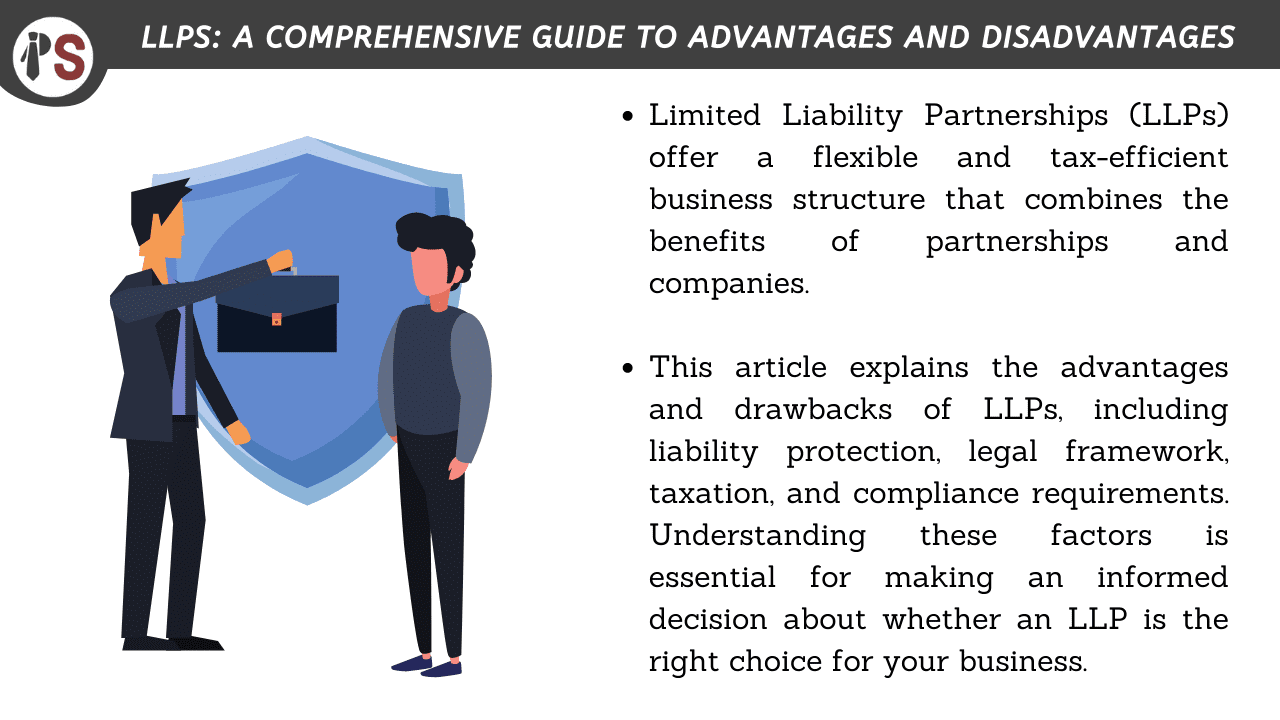
Limited Liability Partnerships (LLPs) are a relatively new business structure that combines the benefits of a partnership with limited liability protection. This type of business structure has become increasingly popular in recent years, especially for professional services firms such as law firms, accounting firms, and consulting companies.
In this blog, we'll take a closer look at LLPs, their benefits, and drawbacks, and help you decide if it's the right business structure for your business.
A Limited Liability Partnership (LLP) is a type of partnership where each partner has limited liability protection. This means that if the business faces any financial or legal issues, the partners are only liable for the amount of money they invested in the business. They are not personally responsible for any debts or lawsuits against the business.
LLPs are typically used by professional services firms, such as law firms, accounting firms, and consulting companies, because they offer the benefits of a partnership (flexibility, management control, and pass-through taxation) with the added protection of limited liability.
Limited Liability Protection: LLPs offer limited liability protection to each partner, which means that their personal assets are not at risk if the business faces any financial or legal issues.
Flexibility: LLPs offer a great deal of flexibility when it comes to management control and ownership. Partners can divide profits and management responsibilities in any way they choose, as long as it is outlined in the partnership agreement.
Pass-Through Taxation: Like partnerships, LLPs have pass-through taxation, which means that the profits and losses of the business are passed through to the partners and reported on their individual tax returns.
Perpetual Existence: LLPs have a perpetual existence, which means that the business can continue to exist even if one or more partners leave the business or pass away.
Credibility: LLPs are seen as more credible than sole proprietorships or partnerships, which can help attract clients and investors.
Complexity: Setting up an LLP requires more paperwork and legal documentation than other business structures.
Cost: LLPs are more expensive to set up than sole proprietorships or partnerships.
Shared Control: Since LLPs are a partnership structure, all partners have equal control over the business, which can lead to disagreements and conflicts.
Unlimited Liability for Partners' Actions: While partners are protected from the business's financial liabilities, they are still liable for their own actions, such as malpractice or negligence.
Limited Availability: LLPs are not available in all states, so it may not be an option for businesses located in certain areas.
Limited Liability Partnerships can be an excellent choice for professional services firms that need the flexibility and pass-through taxation of a partnership structure with the added protection of limited liability. However, it's important to weigh the benefits and drawbacks carefully before deciding if it's the right choice for your business.
If you're considering forming an LLP, it's important to work with a qualified attorney or accountant who can guide you through the process and help you make the best decision for your business.
At Professional Saathi, we offer a range of business consultancy services that help businesses improve their performance, achieve growth, and overcome challenges.
Copyright 2026 © Created By KTPG PROFESSIONAL SAATHI CORPORATE CONSULTANT PRIVATE LIMITED, All Rights Reserved.
Leave Your Comment